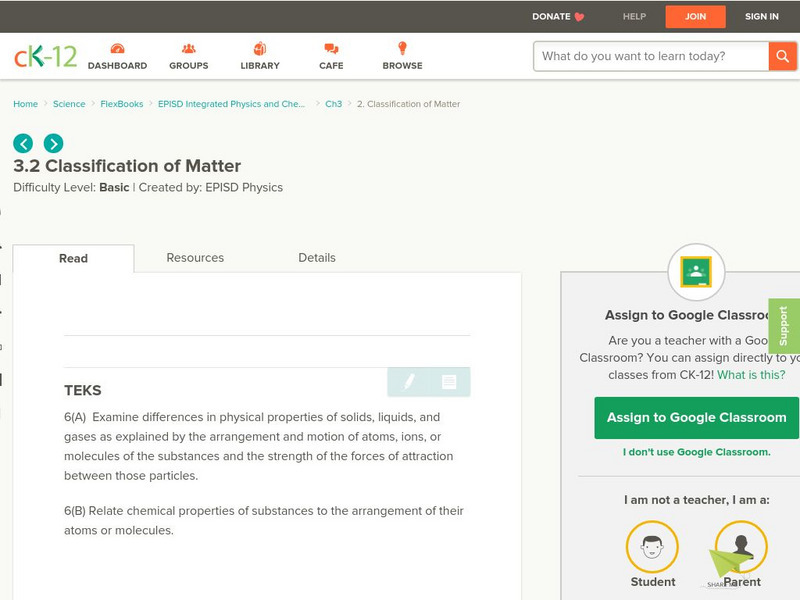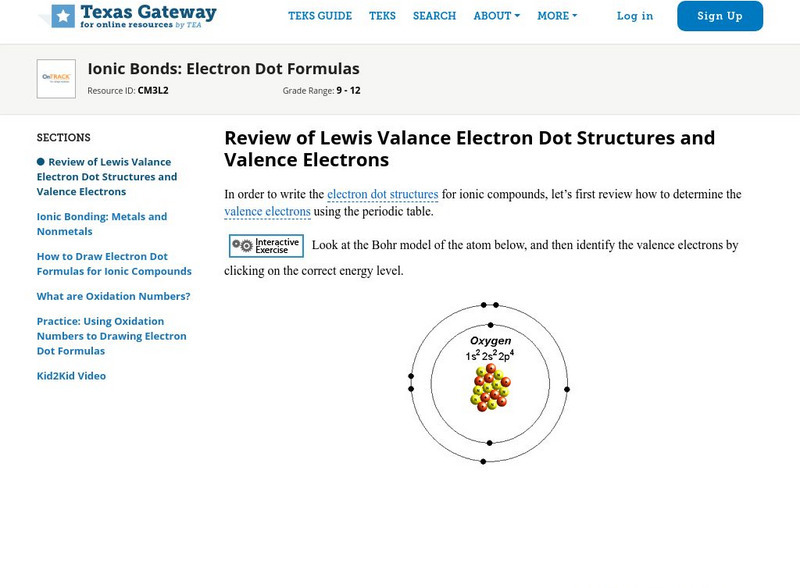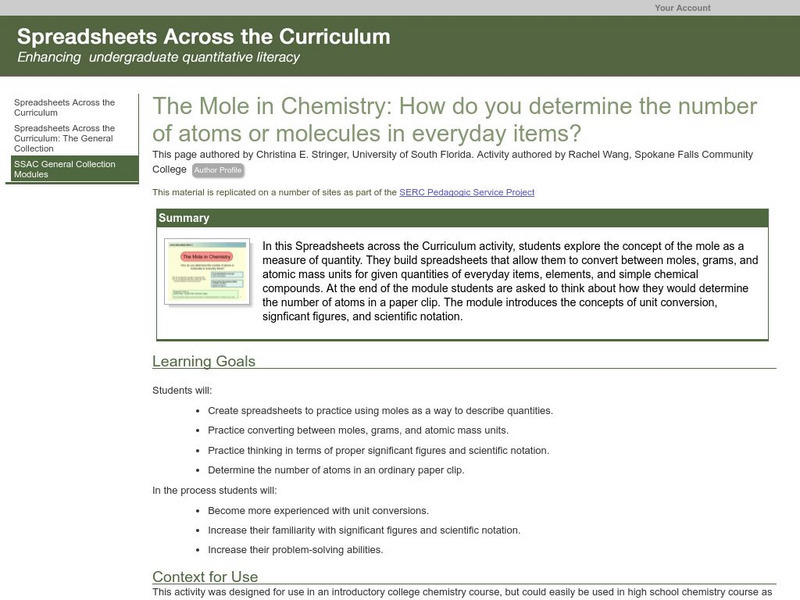Hi, what do you want to do?
Chiral Publishing
Chiral Publishing: An Introduction to Chemistry: Compounds and Chemical Bonds: Audio Book
Did you ever wonder how or why atoms bond together? This interactive tutorial sheds some light on why bonds form and the difference between ionic and covalent bonds.
TeachEngineering
Teach Engineering: Separating Mixtures
For this lesson the students will learn how to classify the materials as mixtures, elements and compounds and identify the properties of each group. Also the concept of separation of mixtures will be introduced to the students. Since...
University of Alberta
The University of Alberta: Detective O Chem
It has been discovered that an indigenous Australian plant possesses a compound that shows antiviral activity against the H5N1 virus. Your mission, should you accept it, is to identify the compound before a rival pharmaceutical company...
Environmental Chemistry
Environmental chemistry.com: Periodic Table Zirconium
Great site with a wealth of data and information on zirconium.
CK-12 Foundation
Ck 12: Net Ionic Equations
[Free Registration/Login may be required to access all resource tools.] Students write net ionic equations for double-replacement reactions that produce precipitates, gases, or molecular compounds, write net ionic equations for...
CK-12 Foundation
Ck 12: Classification of Matter
[Free Registration/Login may be required to access all resource tools.] Students will use the physical and chemical properties of matter to categorize the various forms of matter.
Texas Education Agency
Texas Gateway: Ionic Bonds: Electron Dot Formulas
Given descriptions, diagrams, scenarios, or chemical symbols, students will model ionic bonds using electron dot formulas.
Cosmo Learning
Cosmo Learning: Junior Chemistry With Chemguy
A collection of video lectures to teach junior high students topics in chemistry. Lectures cover topics in understanding the periodic table, compounds, chemical bonding, Avogadro's number, balancing chemical equations, stoichiometry,...
McMaster University
Mc Master University: Chemistry: Ionic Bonds
This site gives a brief description of bonding in ionic compounds.
CK-12 Foundation
Ck 12: Life Science: Chemistry of Life
[Free Registration/Login may be required to access all resource tools.] Many chemical reactions are going on constantly inside your body. In fact, there are probably thousands of chemical reactions occurring every second in every one of...
Chiral Publishing
Chiral Publishing: An Introduction to Chemistry: Important Substances in Food: Audio Book
Learn about the chemical compounds in the foods that you eat everyday. By viewing this audio book, you'll see many structural formulas of these compounds. Also find links to other chapters in the online textbook, animations, and power...
Science Education Resource Center at Carleton College
Serc: The Mole in Chemistry: Determining the Number of Atoms in Everyday Items
Students explore the concept of the mole as a measure of quantity. They build spreadsheets that allow them to convert between moles, grams, and atomic mass units for given quantities of everyday items, elements, and simple chemical...
Science Education Resource Center at Carleton College
Serc: Glow: Living Lights
Accompanying an exhibit called "Glow: Living Lights" is this instructional activity that explores the chemical compounds and adaptations of bioluminescence and other glowing terrestrial animals.
University Corporation for Atmospheric Research
Ucar: Hydrocarbons
Learn about "hydrocarbons", chemical compounds whose molecules are made up entirely of carbon and hydrogen atoms.
Science Struck
Science Struck: Properties and Uses of Alum Powder
Explains what alum is and its properties and uses.
University of Alberta
The University of Alberta: Infrared Spectroscopy
Complete this interactive tutorial and learn about interpreting the infrared spectrum ("I" "R") that provides information about the functional groups in a molecule. Included are 12 labs and a quiz.
Other popular searches
- Naming Chemical Compounds
- Chemical Compounds of Food
- Chemical Compounds in Cells
- Types of Chemical Compounds
- Chemical Compound Crossword
- Chemical Compound Naming
- Chemical Compound Formulas
- Chemical Compound Quiz
- Atoms in Chemical Compounds
- Forming Chemical Compounds
- Chemical Compounds for Life
- Ionic Chemical Compounds















